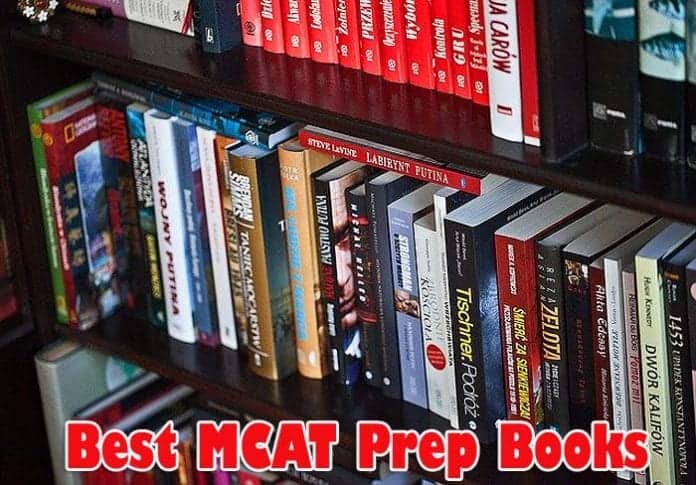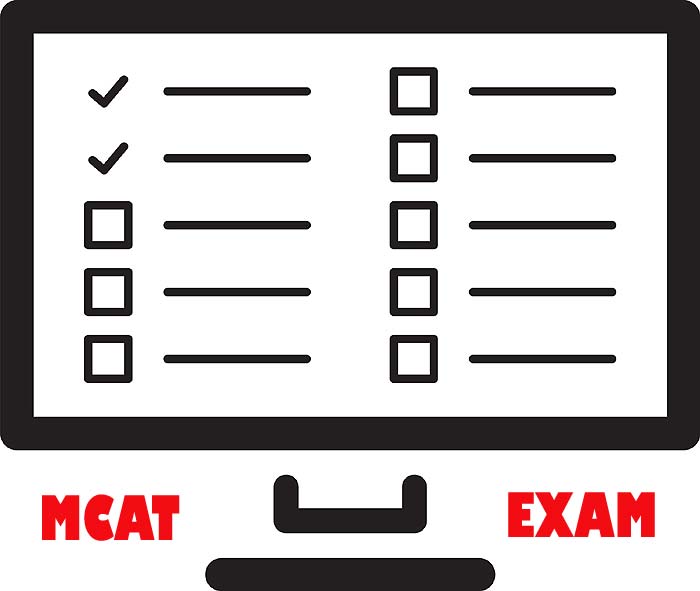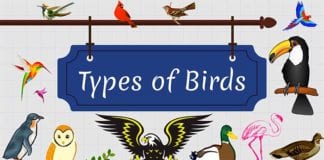
Best MCAT Prep Books: The road of a student is never easy. It is especially true for people who aim to enter health professions. Here we discuss one of the crucial exams that these people must undertake on their road to success – the MCAT® (Medical College Admission Test). We hope to lift the mystery behind these four letters.
Among all the books reviewed below, the best MCAT prep book is the Official Guide to MCAT® Exam, 5th edition offered by AAMC. It provides necessary materials from experts who are responsible for MCAT exam itself. This is a must-have for every student!
Table of Contents
- What is MCAT®?
- What does MCAT contain?
- How MCAT is graded?
- Who can take an MCAT exam?
- How to prepare for the MCAT exam?
- Top 10 Best MCAT Prep Books
- MCAT Complete 7 – Book Subject review 2020-2021
- MCAT Subject Review Complete Box Set, 3rd edition
- Barron’s MCAT with Online Tests, 3rd edition
- MCAT Prep books 2020-2021
- MCAT Secrets Study Guide 2019 – 2020
- MCAT Self Study Toolkit 2020-2021
- 7 Full-length MCAT Practice Tests
- The Official Guide to MCAT® Exam, 5th Edition
- MCAT FastPass Study Guide
- Barron’s MCAT Flash Cards
- Kaplan MCAT Flashcards
- Key References
What is MCAT®?

A path to the cherished M. D. title can be different for everyone. Still, some steps can be universal. In the USA in Canada, all aspiring doctors would have one particular trial in common – the MCAT exam. MCAT is a standard exam offered to all students wishing to enter medical schools in the USA and Canada. It has several important features:
- It is a multiple-choice.
- It is computer-based.
- It is composed by the members of the Association of American Medical Colleges (AAMC).
- It does not only test knowledge on several core science subjects. Another aim of the test is to evaluate one’s reasoning and critical skills.
- It takes about 7 and a half hours to complete the test.
- The student is given approximately 90-95 minutes to complete each section, with short breaks in-between.
Medical colleges do not only consider one’s MCAT scores. There are also GPA scores, medical experiences, extracurricular activities. Still, without MCAT scores, the admission committees would not probably consider other crucial aspects of the application. So it is imperative to do well on this exam in order to get into a good medical program.
![]()
What does MCAT contain?

Basically, an MCAT exam is meant to test one’s knowledge of several subjects. They include:
- General Chemistry
- Organic Chemistry
- General Biology
- Biochemistry
- Physics
- Psychology
- Sociology
This test is considered tricky not only because it tests for such a vast range of information. Its difficulty is also because the questions are composed in a way that forces the candidate to employ critical skills and systems thinking when answering the questions. That is why the sections in the MCAT exam do not correspond to the names of the subjects. For the 2020 exam, they will be called:
- Biological and Biochemical Foundations of the Living Systems Function.
- Chemical and Physical Foundations of Living Systems Function.
- Critical Analysis and Reasoning Skills.
- Psychological, Social, and Biological Foundations of Behavior.
Each part would also contain questions for another crucial component – Scientific Inquiry and Reasoning Skills.
The people that decide to take the test are expected to:
- Have systemic knowledge about various subjects.
- Be aware of the basics of research organization.
- Interpret experimental data (graphs, tables, and other types of information).
- Be able to discuss ethical questions connected with research.
- To propose their own theories based upon the existing knowledge.
In order to be able to have that level of competency, a potential applicant needs to have several years of college courses under their belt, mainly:
- Introductory Physics.
- Introductory General Chemistry, Organic Chemistry, and Biochemistry.
- Introductory Genetics.
- Introductory General Biology.
- Physiology.
- Psychology.
- Sociology.
The potential candidate also needs to have practical laboratory experience.
The main concepts, theories, and areas that one needs to cover during the preparation for MCAT can be looked upon at the AMMC site.
![]()
How MCAT is graded?

After one has taken the exam, the scores for all the sections would be calculated. The scores do not become available immediately – usually, one needs to wait for at least 30 days. The calculation is not straightforward:
- The number of questions that the student has gotten right is taken into account. This count is called a raw score.
- There is also a penalty for questions that were answered wrong.
- The raw score is transformed into a scaled score that also considers the difficulty of the questions.
- The highest score possible is 528.
- Each section has its own score between 118-132 points.
Medical schools usually prefer to take applicants that have scored in the 509-511 range. There is another consideration: if one has a somewhat lower GPA, such an applicant would need a higher than average MCAT score.
If one’s GPA is relatively high, it is possible to get admitted despite somewhat lower success at MCAT. Though MCAT scores are important and reflect one’s readiness for medical studies, they are still evaluated together with other skills and achievements of the candidate.
In order to know the admission scores and other requirements needed to get into a particular school, it is necessary to look up the admissions requirements on the school site.
![]()
Who can take an MCAT exam?

In order to register at AAMC for an MCAT test, one has to be:
- Applying for a medicine-related degree, including degrees at:
- Allopathic medical schools;
- Osteopathic medical schools;
- Podiatric schools;
- Veterinary schools.
- Have a college-level degree (preferably Bachelor of Science).
- International students are required to have an equivalent of Bachelor of Medicine degree.
- If a student wants to take MCAT without intending to apply to a medical school, they need to get special permission from the AAMC.
- The applicant may not exceed certain limits:
- It is possible to take MCAT 3 times in one year;
- It is possible to take the MCAT 4 times in two years;
- It is possible to take the MCAT up to 7 times in one’s lifetime;
- It is necessary to pay a registration fee to take the exam, and one needs to follow a specific procedure in order to be accepted at a testing center.
![]()
How to prepare for the MCAT exam?
As was already mentioned, it is not realistic to pass the MCAT exam by just learning vast volumes of information. In order to be successful in that enterprise, one needs to be able to consolidate the knowledge gained at college into a specific system. One needs to ensure that:
- They understand the main concepts of Biochemistry, Physics, Chemistry, Biology, and Psychology.
- One needs to know how research is planned, conducted and interpreted, and be aware of the ethical issues that arise in connection with it.
- One needs to develop problem – solving skills.
- In order to get a solid theoretical foundation, one needs to do well at the required college courses. It is also good to supplement the lectures with:
- Use quality test preparation guides that help you organize your studies and test your knowledge in different areas.
![]()
Top 10 Best MCAT Prep Books
Here are the bests study guides that will help one organize MCAT preparation, as well as other useful study tools:
MCAT Complete 7 – Book Subject review 2020-2021
Author(s): Kaplan Test Prep.
The features of this book set are:
- The 7 book bundle includes books on:
- Behavioral Sciences.
- Biochemistry.
- General Chemistry.
- Organic Chemistry.
- Physics and Math.
- Critical Analysis and Reasoning Skills (sometimes referred to as CARS).
- The books contain quality tables and diagrams, as well as full-color images.
- The book bundle includes access to an online test (an evaluation test+3 mock full – length MCAT tests).
- There are Quizzes and multiple choices in the books themselves for self-assessment and review.
- The content in the books is MCAT-styled.
- The volume on the Critical Analysis and Reasoning Skills has been updated.
- There are additional chapter profiles that mention how often a particular concept is tested during MCAT.
- Some answers in the tests are wrong.
- There are misspellings and small mistakes in the text itself.
- It is somewhat challenging to get the correct link to the online test.
- These books are not suitable for urgent study and require prolonged, in-depth review.
![]()
MCAT Subject Review Complete Box Set, 3rd edition
Author(s): Princeton Review.
Princeton review MCAT preparation books are also present in most lists for MCAT preparation. The books have several great features:
- The book set contains the following volumes:
- MCAT Biochemistry Review.
- MCAT Biology Review, 2nd Edition.
- MCAT Critical Analysis and Reasoning Skills Review, 2nd Edition.
- MCAT General Chemistry Review, 3rd Edition.
- MCAT Organic Chemistry Review, 3rd Edition.
- MCAT Physics and Math Review, 3rd Edition.
- MCAT Psychology and Sociology Review, 3rd Edition.
- The books offer an in-depth review of all the subjects with quality illustrations.
- The box set offers access to online quizzes and tools that help evaluate one’s level.
- There are tips and strategies for better preparation and learning the concepts.
- The writing style is simple and comprehensive.
- The material is organized similar to a regular textbook.
- Biology and Critical skill volumes are 2ndedition, not 3rdedition.
- There are typos and small mistakes in the text.
![]()
Barron’s MCAT with Online Tests, 3rd edition
Author(s): Cutts, J.B., M.A.
This review book is published by a famous company specializing in educational materials – ‘Barrons. It has the following features:
- The guide includes material on:
- Biology.
- Physical sciences.
- Biochemistry.
- Organic chemistry.
- Sociology.
- Psychology.
- Critical reasoning.
- The guide includes tests before and after the chapters, intended to help with finding “trouble spots” and guide the material revision.
- There are two MCAT-like practice tests in the books with full explanations.
- The purchase includes access to two online practice tests.
- There is a three-month study plan for MCAT included.
- There is thorough information on MCAT organization and the best strategies to prepare for the test.
- The guide includes chapters on learning strategies.
- The guide is easier to understand than other similar editions.
- The guide can be of use to those who could not benefit from famous Kaplan and Princeton guides.
- There are inaccuracies and mistakes in the texts.
![]()
MCAT Prep books 2020-2021
Author(s): Test Prep Books.
This guide has the following positive features:
- The chapters are named after the parts of the exam and discuss the main concepts tested:
- Biological and Biochemical Foundations of Living Systems.
- Chemical and Physical Foundations of Biological Systems.
- Psychological, Social, and Biological Foundations of Behavior.
- Critical Analysis and Reasoning Skills.
- The book also includes a separate chapter on test-taking strategies.
- There are practice questions with explanations for the answers.
- The layout of the material reflects the organization of the actual MCAT test.
- The guide offers concise recaps of the subjects.
- Some useful graphs and tables help understand the material.
- This book provides a “speedy” overview of the material, without an in-depth review of separate subjects.
![]()
MCAT Secrets Study Guide 2019 – 2020
Author(s): Mometrix Medical School Admissions Test Team.
This study guide offers the following features:
- A review of all of the sections of the MCAT test.
- Chapters on planning strategies.
- Chapters that discuss methods for overcoming test anxiety.
- There are Practice tests with explanations of the answers.
- The guide explains all the crucial concepts of Physical sciences, Biology, Chemistry, and Psychology in detail.
- The purchase includes access to online videos that further explain the main ideas critical for passing the test.
- The writing style of the guide is excellent.
- There is only one practice MCAT, not several.
- This book is intended for a quick review, not in-depth learning.
![]()
MCAT Self Study Toolkit 2020-2021
Author(s): Kaplan Test Prep.
This next MCAT prep book is a new toolkit offered by a company specializing in test preparation guides, Kaplan test prep. The toolkit contains:
- The 7-book set that covers main MCAT subjects:
- Biology.
- Biochemistry.
- Behavioral Sciences.
- Organic Chemistry.
- General Chemistry.
- Physics and Math.
- Critical Reasoning and Analytic Skills.
- The purchase includes access to 6 online practice full-length MCAT tests with full explanations.
- There are also unique additions written by the experts in Behavioral Sciences, Biochemistry, and Biology.
- The purchase includes a program called Adaptive Q-bank that determines the student’s “problem” spots, offering questions in the areas that the student needs to improve in.
- Adaptive Q-Bank contains more than 2000 questions in all subject areas.
- The text highlights the areas and concepts usually featured on the MCAT test.
- The box set may contain typos and inaccuracies.
![]()
7 Full-length MCAT Practice Tests
Author(s): The MCAT-prep. com team of authors and editors.
This book is intended for practicing test-taking, getting familiar with the layout and organization of the exam, and questions that are offered.
The features of the book include:
- Sections devoted to:
- Psychology.
- Sociology.
- Biochemistry.
- Biology.
- General Chemistry.
- Organic Chemistry.
- Physics.
- Critical Analysis and Reasoning Skills (CARS).
- A code that allows accessing to additional online mock exams.
- There is a full-color reference guide with most important formulas and concepts for Biochemistry, Physics, General and Organic Chemistry in 32 pages that could be torn out and used separately.
- The questions in the book are organized in the fashion similar to MCAT requirements.
- The timing, the number of questions per section, as well as the number of “discrete” questions, correspond to the AAMC guidelines.
- The answers are explained online, not included in the book.
- There are typos.
- The mock exams may not reflect the real MCAT exam fully.
![]()
The Official Guide to MCAT® Exam, 5th Edition
Author(s): Association of the American Medical Colleges.
This guide is a must-have for any student wishing to take the MCAT exam, as it is written by the very people who organize it every year. The main features of the guide are:
- Chapters on exam preparation.
- Descriptions of each section.
- Description of the exam structure and timeline.
- Chapter on scoring principles.
- 120 practice questions and solutions.
- The AAMC writes this prep guide.
- The guide is well organized and contains crucial information.
- The guide can help with composing study plans.
- The Kindle version of the book is hard to read compared to the paperback.
![]()
MCAT FastPass Study Guide
Author(s): Malphrus, Elizabeth, Austin Fisher, Conrad Fisher, M. D.
This MCAT study guide is a concise review guide that can help one design study plans. It also can be used as a first refresher. This book has the following positive features:
- It contains all the essential formulas, images, concepts and diagrams that would be tested on the MCAT.
- It offers excellent and practical test-taking strategies.
- The guide can be integrated with the official AAMC materials.
- The format of the guide is easy to follow.
- The chapters are organized according to MCAT sections, not subject topics.
- The interior is entirely black and white; there are no color images and photos.
![]()
Barron’s MCAT Flash Cards
Author(s): Cutts, J.B., M.A.
Despite the name, these are note-cards, not flashcards. They are aimed to make the student’s studies easier. They have the following features:
- Each flashcard in the pack has the term/question on the front and the detailed explanation on the back.
- The cards are divided into subjects: Biochemistry, Biology, Organic Chemistry, General Chemistry, Physics, Psychology, and Sociology.
- The cards are 4 1/2″ by 2 ¾ in size.
- The cards can be used either by themselves or along with Barron’s study guide.
- Each card has a hole that can accommodate a key ring.
- Each card can have several terms or concepts, unlike a flashcard that has only one term/definition per card.
- The cards are convenient and durable.
- The cards can be organized by topic.
- The cards are easily transportable.
- As each card contains much information, it cannot be used for simple revision.
- Some cards have errors.
![]()
Kaplan MCAT Flashcards
Author(s): Kaplan test prep.
These are flashcards, intended for revision. Their main features of this tool are:
- The cards are made of thin paper and have a term/concept on the front and the definition/explanation on the back.
- The cards cover terms for:
- Behavioral Sciences.
- Biology.
- Biochemistry.
- formulas and concepts for Chemistry Sciences and Physics.
- The purchase includes access to the application for revision.
- The flashcards prioritize definitions and formulas.
- The cards have no diagrams or drawings.
- The cards are light and are transportable easily.
- The cards follow the one card-one term principle.
- The cards are an excellent revision tool.
- The flashcards do not cover concepts.
- The paper of the flashcards is too thin, and they get damaged easily.
- The cards are hard to classify.
- Lack of drawings is inconvenient in Biology and Chemistry.
- Some cards contain mistakes.
- The sections are not covered equally.
![]()
The list presented shows that the study guides currently offered on the market cater to different student needs: some offer simplified material that enables quick revision, while others offer comprehensive review, intended to be worked through for a more extended period, up to a year.
Among all the books listed, we would nominate the official guide offered by AAMC. Not only it is well written and is well - received by potential students; it also offers the necessary materials from the experts that are responsible for the exam itself. This book is a must-have for every student, while other editions can be combined and used based on student's pace and preferences.
While preparing for MCAT, it is not enough to rely on only one tool. Students that want to pass such a rigorous exam should make a long-term study plan and employ a combination of methods – textbooks, flashcards, online materials, study guides, and applications.
One’s preparations should ensure 3 crucial things:
A) One needs to have an excellent grasp of the theory.
B) The theory is only the prelude to practice – one needs to learn to look beyond the formulas and try to play with them and adjust them to the possible problems.
C) It is essential to be familiar with the main principles and ideas of the exam in order to avoid anxiety later.
It is imperative to take care of oneself – to eat well, sleep well, and pace one’s studies. MCAT is complicated, but there are have years and years of medical school afterward. This is just a first hurdle.
![]()
Cite This Page
Key References
- “What You Need to Know About the MCAT® Exam”. Accessed January 08, 2020. Link.
- “Tomorrow’s Doctors, Tomorrow’s Cures | AAMC”. Accessed January 08, 2020. Link.
- “Psychological, Social, and Biological Foundations of Behavior Section: Content Category 6A”. Accessed January 08, 2020. Link.
- “MCAT Scores”. Accessed January 08, 2020. Link.
- “What is a Good MCAT Score? | MCAT Scores | The Princeton Review”. Accessed January 08, 2020. Link.
- “MCAT 2020 Eligibility, Exam Dates, Application Form”. Accessed January 08, 2020. Link.
- “Barron’s: The Trusted Name in Test Prep”. Accessed January 08, 2020. Link.
- “About Kaplan | Kaplan Test Prep”. Accessed January 08, 2020. Link.






![MCAT Prep Books 2020-2021: MCAT Study Guide 2020 & 2021 and Practice Test Questions for the Medical College Admission Test [Includes Detailed Answer Explanations]](https://m.media-amazon.com/images/I/51kqnygrM0L.jpg)



















